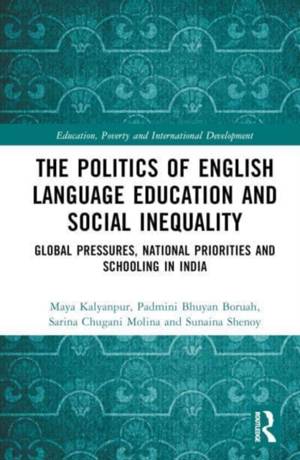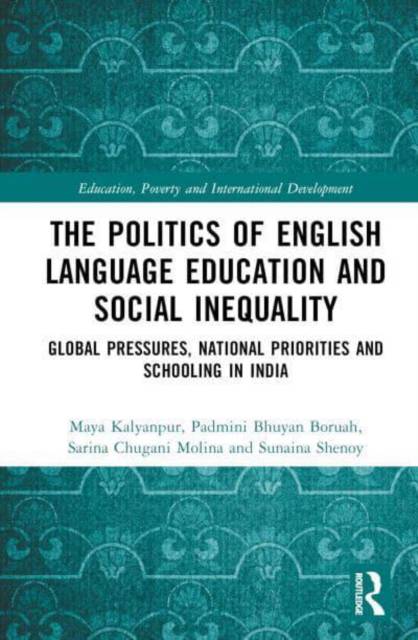
- Retrait gratuit dans votre magasin Club
- 7.000.000 titres dans notre catalogue
- Payer en toute sécurité
- Toujours un magasin près de chez vous
- Retrait gratuit dans votre magasin Club
- 7.000.000 titres dans notre catalogue
- Payer en toute sécurité
- Toujours un magasin près de chez vous
The Politics of English Language Education and Social Inequality
Global Pressures, National Priorities and Schooling in India
Maya Kalyanpur, Padmini Bhuyan Boruah, Sarina Chugani Molina, Sunaina ShenoyDescription
Based on policy analysis and empirical data, this book examines the problematic consequences of colonial legacies of language policies and English language education in the multilingual contexts of the Global South.
Using a postcolonial lens, the volume explores the raciolinguistics of language hierarchies that results in students from low-income backgrounds losing their mother tongues without acquiring academic fluency in English. Using findings from five major research projects, the book analyzes the specific context of India, where ambiguous language policies have led to uneasy tensions between the colonial language of English, national and state languages, and students' linguistic diversity is mistaken for cognitive deficits when English is the medium of instruction in schools. The authors situate their own professional and personal experiences in their efforts at dismantling postcolonial structures through reflective practice as teacher educators, and present solutions of decolonial resistance to linguistic hierarchies that include critical pedagogical alternatives to bilingual education and opportunities for increased teacher agency.
Ultimately, this timely volume will appeal to researchers, scholars, academics, and students in the fields of international and comparative education, English and literacy studies, and language arts more broadly. Those interested in English language learning in low-income countries specifically will also find this book to be of benefit to their research.
Spécifications
Parties prenantes
- Auteur(s) :
- Editeur:
Contenu
- Nombre de pages :
- 200
- Langue:
- Anglais
- Collection :
Caractéristiques
- EAN:
- 9780367646165
- Date de parution :
- 30-12-22
- Format:
- Livre relié
- Format numérique:
- Genaaid
- Dimensions :
- 156 mm x 233 mm
- Poids :
- 430 g







